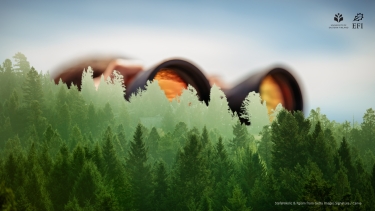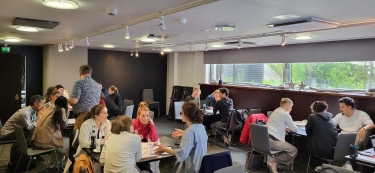Bioeconomy and circular economy need to come together
EFI Director Marc Palahí was one of the panellists at the Russia-Finland Business Roundtable at the St. Petersburg International Economic Forum (SPIEF2019). In his address, Palahí pointed out that bioeconomy and circular economy need to form together the basis for a new economic model that replaces our current linear fossil economy and supports the transition towards a carbon neutral economy by 2050 – circular bioeconomy. This requires not only transitioning to renewable energy but also replacing fossil products and non-renewable materials by renewable options. Bioeconomy can deliver the renewable biological resources, but as those resources are not unlimited, their use needs to be intelligent, efficient and sustainable. Here bioeconomy needs the support of circular economy in ensuring resource efficiency and designing products which hold their use and value as long as possible, and are easily reusable and recyclable.
Palahí used the construction sector as example for circular bioeconomy as it is of high economic relevance and has great environmental impacts. The construction sector is dominated by two carbon-intense non-renewable materials: concrete and steel. Their production represents more than 10% of the global carbon emissions. The sector is also very material intense as it uses 50% of all resources extracted globally. Using wood in construction is one of the most effective ways to capture carbon, and the new wood engineering products enhance innovation on the sector. With a hypothetical example, Palahí illustrated that using 40% of the annual Russian roundwood production and new innovative engineering and building technologies, 1.2 million apartments could be built every year, equivalent to 100% of the Russian housing market. This would also result in storing 25 million tons of CO2 and avoiding 32 million tons of CO2 every year – the equivalent of the annual carbon footprint of 3 million Russian inhabitants. In addition, wood construction would boost innovation and productivity in the sector and also provide jobs in rural areas.
The Russia-Finland Business Dialogue was moderated by Esko Aho, Prime Minister of Finland (1991–1995); Senior Adviser, East Office of Finnish Industries. He is EFI's Strategic Advisor on Europe-Russian cooperation.
Watch the recording of the discussion here. (Marc Palahí's address starts at 37 mins).


